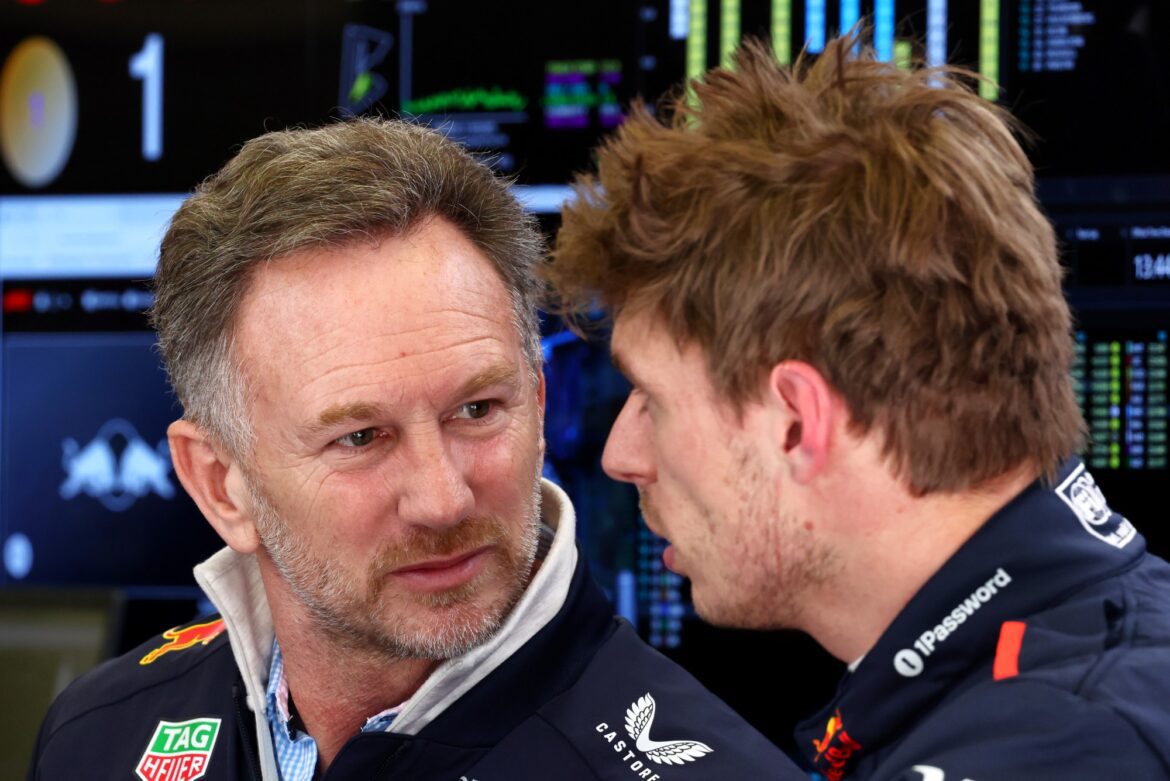Christian Horner Defends Max Verstappen’s Cautious Approach After Saudi Arabian GP
In the wake of the Formula 1 Saudi Arabian Grand Prix, Christian Horner, the managing director of Red Bull Racing, voiced his support for Max Verstappen following the driver’s restrained demeanor during post-race interviews. Verstappen, who secured a second-place finish in Jeddah, opted not to comment directly on the ten-second penalty he incurred after overtaking Oscar Piastri outside of the designated racing line at Turn 1. This maneuver allowed him to take the lead momentarily, but he failed to relinquish his position as required by the regulations.
Horner praised Verstappen’s level of maturity during a recent episode of the BBC podcast "The Inside Track." He stated, "What Max did shows remarkable maturity, to be honest. It’s one of the toughest situations a driver can face. The adrenaline is still pumping when they exit the car, and suddenly, a microphone is thrust in front of them."
Verstappen’s finish came just 2.8 seconds behind Piastri, making the penalty from the race stewards pivotal in the final outcome. Without that five-second penalty, it’s quite plausible that Verstappen could have clinched the victory, which would have propelled him to the top of the championship standings.
During a post-race interview with David Coulthard, Verstappen chose to keep his responses measured, steering clear of any criticisms that could potentially lead to further repercussions from the FIA (Fédération Internationale de l’Automobile). When questioned about the incident that led to his penalty, Verstappen maintained a diplomatic stance. However, in the official press conference that followed, he opened up slightly more but still refrained from addressing the incident head-on.
Horner reflected on Verstappen’s approach, noting, "He took a deep breath and thought, ‘I won’t put myself in a precarious position here,’ and I completely understand that." This illustrates the pressure that drivers face in high-stakes situations, particularly when they must navigate complex regulatory frameworks while also managing public perception.
Verstappen’s cautious responses in the aftermath of the race highlight the delicate balance drivers must strike between expressing their true feelings and safeguarding their standing in the sport. The tension between desire for authenticity and the need for strategic communication is palpable in high-pressure environments like Formula 1.
Furthermore, the repercussions of such penalties extend beyond a single race. They can significantly affect championship standings and team dynamics. As Verstappen continues to navigate the challenges of the season, his ability to manage his responses under pressure will be crucial not only for his individual performance but also for Red Bull Racing’s overall strategy.
The Saudi Arabian GP has become a focal point in the F1 calendar, known for its high-speed street circuit and night race atmosphere. The unique challenges that come with racing in such an environment require drivers to be at the top of their game, both technically and mentally. Verstappen’s performance, despite the penalty, showcased his skill and determination, reinforcing his status as one of the top contenders in the championship.
As the season progresses, the stakes will continue to rise. Teams and drivers alike will be closely monitoring the standings and adjusting their strategies in response to the unfolding drama on the track. The dynamics of the championship can shift rapidly, making each race a critical component of the overall narrative.
As fans eagerly await the next race, discussions surrounding Verstappen’s approach and the implications of his penalty will dominate conversations. The interplay between driver behavior, team strategy, and regulatory scrutiny remains a compelling aspect of Formula 1, drawing in audiences from around the world.
For Red Bull Racing, the focus will undoubtedly remain on maximizing performance while also managing the complexities of public relations. Horner’s defense of Verstappen serves as a reminder of the human element in motorsport, where emotions run high, and decisions must be made swiftly.
In conclusion, the unfolding story of Max Verstappen and his cautious handling of post-race interviews in Saudi Arabia illustrates the multifaceted nature of Formula 1. It showcases the blend of high-octane competition, strategic maneuvering, and the pressures that come with being in the spotlight. As the season continues, all eyes will be on how Verstappen and Red Bull Racing navigate the challenges that lie ahead, both on and off the track.
